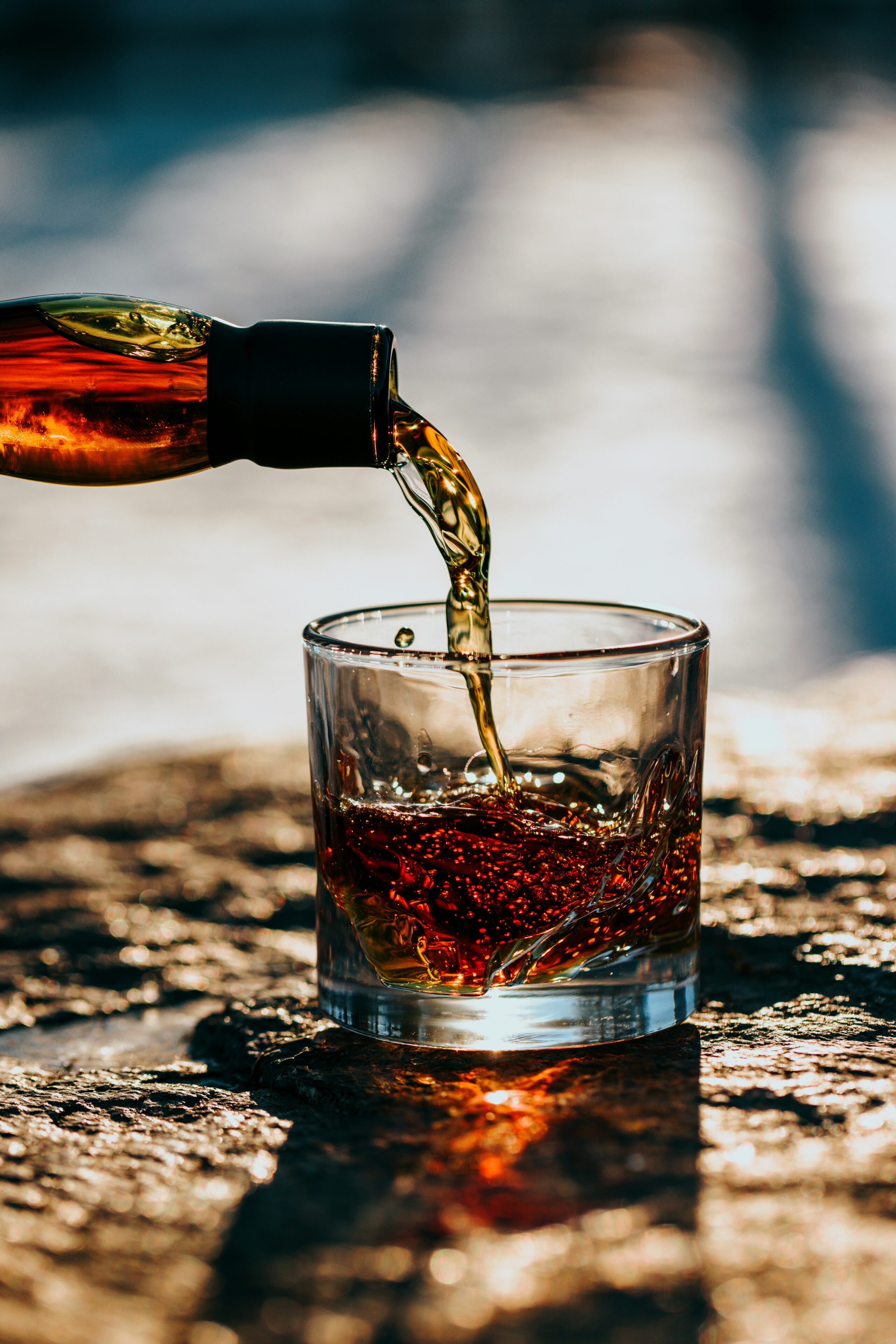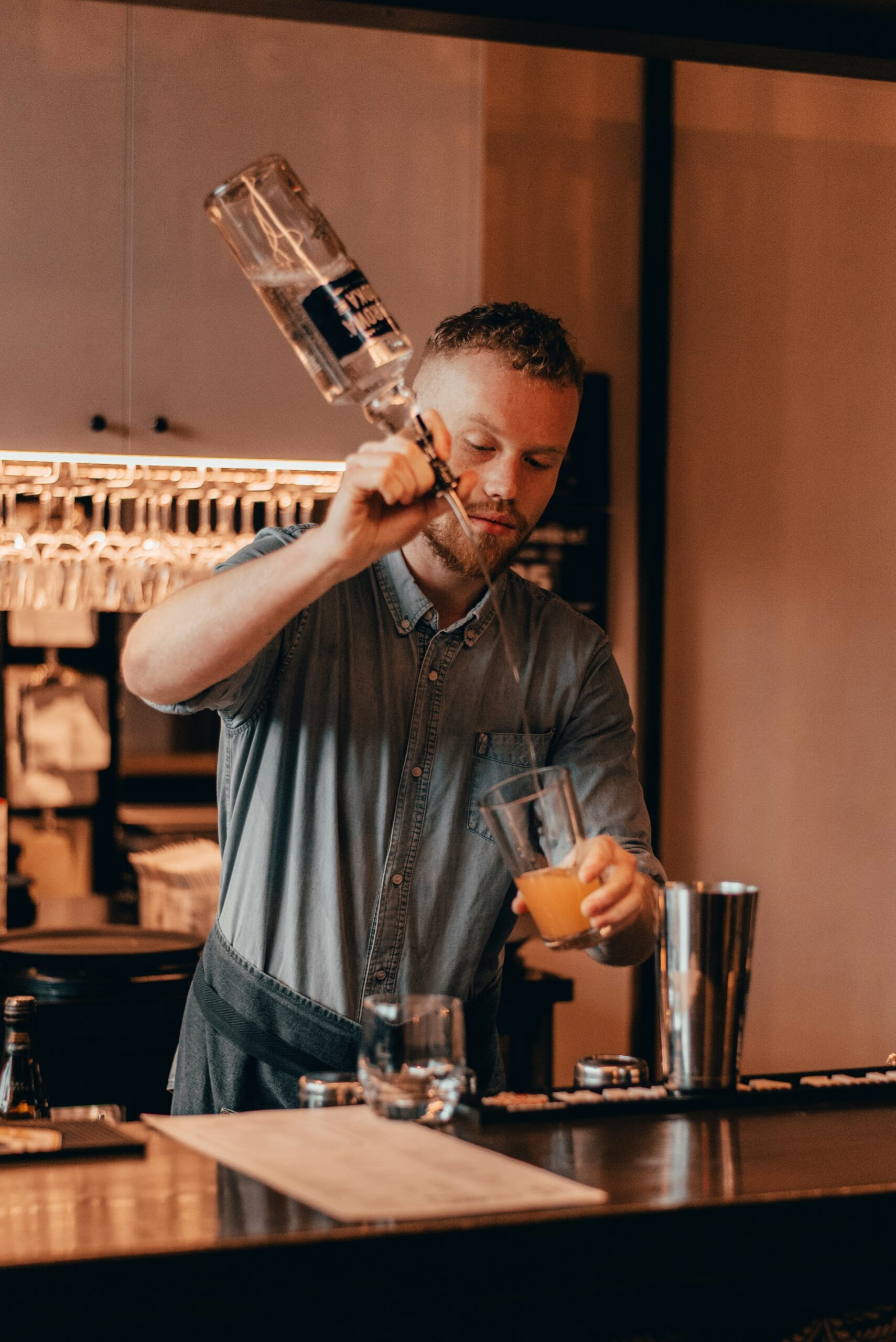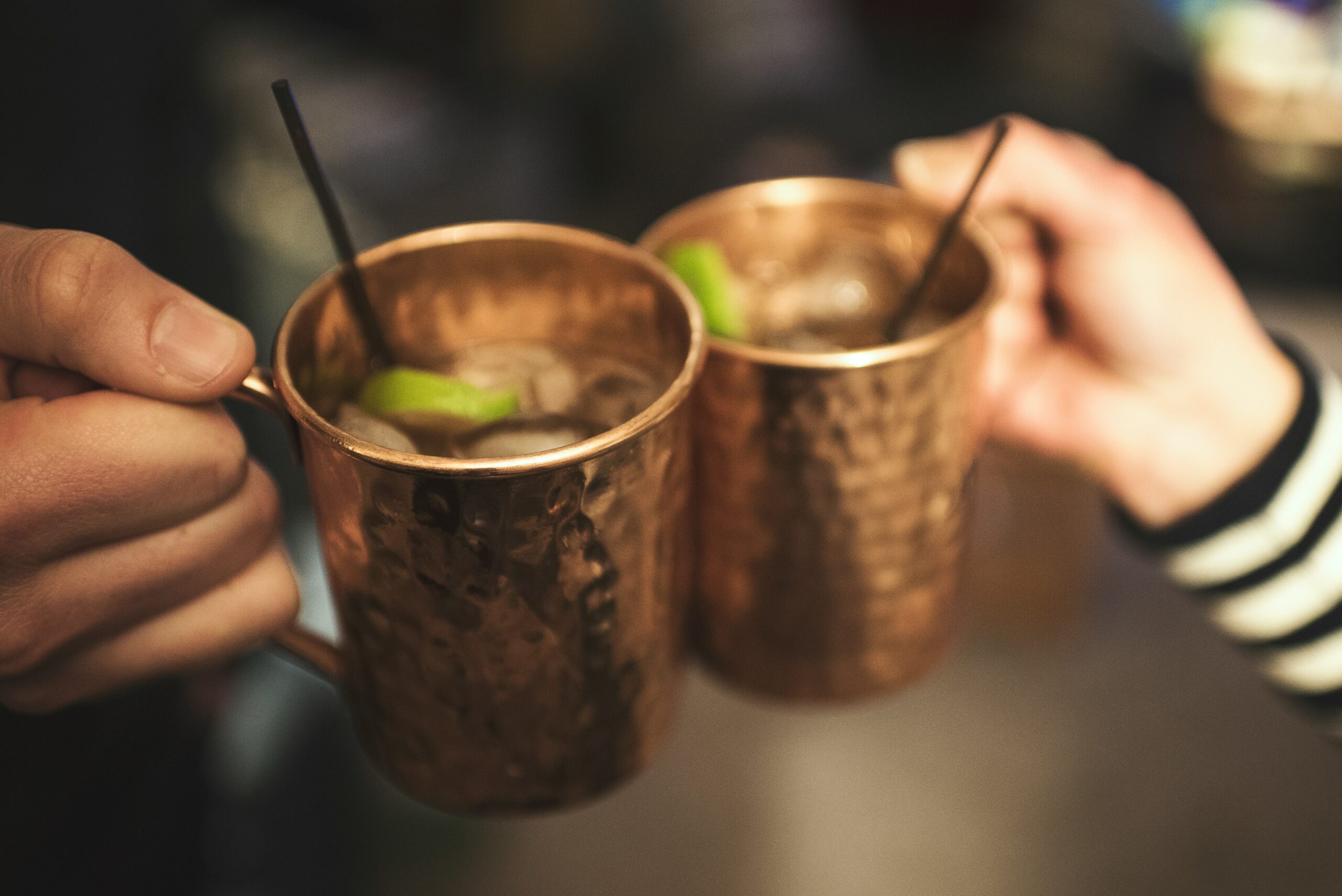If you’re planning a corporate event in Austin and want to add a touch of class, a luxury mobile bar is an excellent choice for creating a sophisticated atmosphere. However, navigating the maze of permits and regulations is essential to ensure that your guests can enjoy their drinks without any legal issues.
This involves understanding the rules set by the Texas Alcoholic Beverage Commission and ensuring that you have comprehensive insurance coverage. By following these guidelines, you can operate your mobile bar legally and ensure that your event’s bar scene is as smooth as the drinks served.
Keep reading to learn more about achieving legal compliance and ensuring a flawless bar experience at your event.
Key Takeaways
- Understanding and Adhering to Austin’s Local Ordinances and Texas Laws Is Essential for Mobile Bars at Corporate Events
- Obtaining the Proper Liquor License From the Texas Alcoholic Beverage Commission Is Key to Operating Legally
- Comprehensive Insurance, Including General Liability and Liquor Liability, Is Necessary to Protect the Business
- Effective Staff Training in Responsible Alcohol Service and Legal Compliance Is Crucial
- Cooperation With Venue Managers and a Meticulously Curated Compliance Checklist Help Avoid Legal Issues
Understanding Local and State Regulations for Mobile Bars

Understanding the legal landscape is crucial when planning a corporate event in Austin with a luxury mobile bar.
At the local level, event planners must grasp Austin’s specific ordinances on where and how mobile bars can operate.
Beyond city limits, Texas laws weigh in significantly, especially those set by the Texas Alcoholic Beverage Commission, the gatekeeper for state-level liquor licensing.
It’s essential for the success of the event that planners stay informed about the latest in liquor laws and any legislative shifts that could affect service.
Whether it’s updates in zoning, health standards, or licensing, a keen eye on regulatory compliance saves time, money, and the headache of legal woes.
Identify Relevant Local Laws Affecting Mobile Bars
Awareness of local laws is key when setting up a luxury mobile bar for a corporate event in Austin, as they dictate everything from the required distance from schools and churches to the specifics of operating on private property. These regulations, often detailed and specific to each city, can vary even within the state, making it critical for business owners to consult a knowledgeable lawyer who can guide them through the nuances of Austin’s legal landscape, ensuring every glass of Prosecco poured abides by the governing laws.
Understand State-Level Liquor Licensing Requirements
Securing the proper liquor license from the Texas Alcoholic Beverage Commission is a pivotal step for mobile bars serving alcoholic beverages at corporate events. This license acts as a safeguard, aligning the mobile bar’s service with Texas alcohol regulations, a fundamental aspect of operating responsibly within the alcoholic beverage industry. By obtaining this license, mobile bar owners affirm their commitment to legal trade and consumer safety throughout their business operations.
Keep Abreast of Changes in Legislation
The fluid nature of legislative changes means that companies must stay informed:
- Maintain regular contact with the Texas Alcoholic Beverage Commission for updates.
- Subscribe to industry newsletters for insights on the alcoholic beverage sector.
- Attend local seminars and webinars focused on hospitality law.
Changes in legislation could impact everything from tax obligations to employment practices, making continuous education an indispensable part of the business model for mobile bars.
Securing the Right Liquor License for Your Event

Arranging a corporate event with a mobile bar involves several logistical considerations, one of the most critical being procuring a liquor license.
A necessity for legality and legitimacy, determining the precise license type depends on the event’s specific requirements, such as the location, duration, and scope of alcohol service.
Once identified, navigating the maze of the application process is next, demanding attention to detail and adherence to regulatory guidelines.
To prevent unnecessary delays, mobile bar owners should adopt proactive strategies, ensuring their paperwork is accurate, complete, and submitted well before any deadlines to expedite approval and secure the right to serve alcoholic beverages seamlessly at their corporate gatherings.
Determine the Type of Liquor License Required
Identifying a mobile bar’s specific liquor license requires hinges on factors like the range of alcoholic beverages offered and whether the event spans a single day or multiple sessions. In Texas, options vary from temporary event permits to annual licenses, each suiting different service styles and client needs. Mobile bar operators must align their selections with event details and state guidelines to obtain the appropriate authorization for alcohol distribution.
Navigating the Application Process Efficiently
Navigating the Texas liquor license application process involves clear communication and thorough documentation. Mobile bar entrepreneurs should prioritize gathering all necessary information, such as proof of vehicle insurance and business permits, before initiating the application with the Texas Alcoholic Beverage Commission.
| Step | Action | Details |
|---|---|---|
| 1 | Documentation Collection | Gather business permits, vehicle insurance, and other relevant paperwork. |
| 2 | Liquor License Application | Submit the application to the Texas Alcoholic Beverage Commission with the correct details. |
| 3 | Follow-up | Regularly check status and respond to any requests for additional information. |
Strategies for Expediting Approval
To expedite approval for a liquor license, mobile bar operators in Austin should consider establishing a rapport with the Texas Alcoholic Beverage Commission and ensuring rapid responses to any queries they pose. Streamlining the application process is amplified by employing an experienced lawyer who understands the intricacies of the Alcoholic Beverage Commission’s requirements and can shepherd the application through efficiently, minimizing roadblocks along the way. A meticulously planned submission strategy not only accelerates the approval process but also enhances the prospect of a successful outcome:
- Pre-qualify for a license by verifying eligibility and understanding the criteria before application submission.
- If available, utilize online platforms or digital submission methods for faster processing.
- Schedule consultations with the commission to clarify any potential issues in advance.
Training Staff on Legal Compliance and Responsible Service

Effective leadership in a mobile bar business at Austin corporate events entails much more than just a sleek truck and a selection of fine beverages.
The true art lies in ensuring that the staff, from the bartenders to the kitchen support, upholds the highest standards of legal compliance and responsible service.
To this end, it is imperative to implement mandatory Responsible Service of Alcohol training, conduct regular compliance refreshers, and firmly establish protocols that ensure diligent ID checks and effective intoxication management.
These measures are the foundation for a trustworthy brand that not only delights customers with an unforgettable experience but also respects the local laws and regulations governing alcohol service.
Implement Mandatory Responsible Service of Alcohol Training
Training is more than a formality; it represents a mobile bar’s commitment to safety and professionalism. By instituting mandatory Responsible Service of Alcohol programs, staff are equipped not only with knowledge about the laws that govern the sale of alcoholic beverages but also with practical skills to ensure those standards are met during every event.
- Enroll all staff in certified training programs recognized by the Texas Alcoholic Beverage Commission.
- Focus on real-world scenarios within the training to prepare staff for diverse customer interactions.
- Establish a culture of continuous learning and legal compliance throughout the company.
Conduct Regular Compliance Refreshers and Updates
Refreshers and updates on compliance are critical for maintaining a mobile bar’s integrity. They ensure that staff remain alert to changing regulations and the nuances of responsible alcohol service. It’s not enough to train once; the law and best practices evolve, mandating periodic refreshers to keep the entire team abreast of the latest requirements.
| Training Component | Description | Frequency |
|---|---|---|
| Regulatory Compliance Update Sessions | Review of new and updated local and state laws applicable to mobile bar operations | Bi-Annually |
| Responsible Service Practices | Reinforcement of ID check protocols and methods to manage intoxicated patrons | Annually |
| Customer Interface Scenarios | Interactive training addressing customer service and conflict resolution | Quarterly |
Establishing Protocols for ID Checks and Intoxication Management
Robust protocols for ID checks and intoxication management are pivotal for the seamless operation of a mobile bar at any Austin corporate event. Mobile bar teams, ensuring every guest has a safe and enjoyable time, must consistently apply strategies to verify age and monitor alcohol consumption effectively. Strengthening these practices, mobile bars maintain legal compliance and promote a culture of mindfulness and accountability that reflects positively on the company’s reputation.
Insurance Coverage Essentials for Mobile Bars
At the heart of every mobile bar’s operations, especially when considering corporate events, lies the need for robust insurance coverage.
This safety net protects the business against potential legal liabilities and financial losses.
In the realm of luxury mobile bars, where the clientele expects a premium service, insurance serves not just as compliance but also as an assurance of quality and trustworthiness.
Navigating the insurance landscape requires understanding the different policies required, the nuances of liability coverage, and the systematic approach toward securing comprehensive protection.
This segment sheds light on these intricacies, ensuring that mobile bar operators can serve with peace of mind, knowing they have the necessary safeguards.
Outline Necessary Insurance Policies for Mobile Bars
For mobile bars on the move, securing the correct blend of insurance policies is beneficial and imperative for the business. General liability insurance stands out as the cornerstone, offering broad protection against varied risks. In contrast, additional coverages like liquor liability insurance specifically address the unique exposures associated with the alcoholic beverage trade. Vehicle insurance, meanwhile, provides a shield for the mobile bar itself, covering damages and accidents encountered on the bustling streets of Austin.
Discuss Liability Coverage and Its Importance
In the buzzing atmosphere of corporate events, liability coverage is a sentinel for mobile bar operators, providing an essential layer of financial security. This insurance type is designed to shield the business from claims arising due to injury or property damage that may occur as a result of serving alcohol. With adequate liability coverage, mobile bar owners can navigate the complexities of alcohol service with greater confidence, knowing they are protected against potential lawsuits that could otherwise jeopardize the health of their enterprise.
Steps to Ensure Full Insurance Compliance
To safeguard against legal and financial repercussions, mobile bars must meticulously adhere to insurance requirements: they should consult with insurance professionals to assess risks, thoroughly understand policy options, and confirm that their coverage meets or exceeds the minimum standards mandated by Texas law.
| Checklist Item | Action | Purpose |
|---|---|---|
| Assessment with an Insurance Expert | Schedule a consultation to evaluate potential risks and coverage needs. | Customizes insurance solutions to the unique aspects of the mobile bar business. |
| Policy Review | Compare different insurance policies to ensure comprehensive coverage. | Identifies gaps in coverage to avert potential exposures. |
| Compliance Verification | Validate that insurance policies comply with Texas state laws and local Austin ordinances. | Guarantees that the mobile bar meets legal insurance requirements for operation. |
Handling Alcohol Safely and Legally in Different Venues

Scaling the business of mobile bars to a variety of venues for Austin corporate events means playing by a different set of rules every time.
Each property—from a sunlit hillside retreat to a downtown Houston event space—brings unique liquor compliance mandates, which can differ starkly.
Mobile bar operators must be vigilant, aligning their operations with the specific requirements of the venues they grace.
Understanding these venue-specific mandates is crucial, as is forging partnerships with venue managers to ensure cohesion and compliance.
In this realm, a carefully curated checklist becomes an indispensable tool, guiding the setup of mobile bars within the confines of local and state laws, and contributing to a legally sound and enjoyable corporate event experience.
Understand Venue-Specific Liquor Compliance Requirements
Every venue has its own set of rules regarding the service of alcoholic beverages, a vital consideration for mobile bars servicing corporate events. Whether the event is in a private vineyard or on a retail property, the owners and operators of luxury mobile bars must thoroughly understand and comply with each location’s specific rules and agreements. It’s a dance of details that ensures festivities flow without a hitch: respecting property boundaries, adhering to zoning restrictions, and confirming permissions for alcohol service before the first cork pops.
| Venue Type | Compliance Focus | Action Steps |
|---|---|---|
| Private Property | Ensure agreements allow alcohol service | Confirm with the property owner; obtain necessary permissions. |
| Retail Spaces | Adhere to zoning laws and venue policies | Consult with local authorities; review the venue’s terms and conditions. |
| Outdoor Areas | Comply with public space regulations | Secure permits; establish boundaries for alcohol consumption. |
Coordinate With Venue Managers for Compliance Alignment
Cooperation with venue managers is pivotal when ensuring that luxury mobile bars operate within the boundaries of the law during corporate events. In a symbiotic exchange, mobile bar operators can tap into the venue’s existing knowledge of site-specific regulations, while managers benefit from added reassurance that the event complies with all legalities surrounding alcohol service. This partnership fosters an environment where both parties work toward the common goal of hosting a successful, law-abiding event.
Develop a Checklist for Setting Up Mobile Bars in Compliance With Laws
Creating a comprehensive checklist is a strategic step for mobile bar operators to ensure adherence to laws and regulations. This list serves as a foundation for the application of best practices across a range of venues, safeguarding against oversights that could lead to legal complications:
- Acquire necessary permits from local authorities and the Texas Alcoholic Beverage Commission.
- Secure written agreements for alcohol service on private property or retail spaces.
- Confirm the scope of coverage with liability and liquor liability insurance.
- Ensure all staff are trained and certified in responsible alcohol service.
- Vet the event space for compliance with zoning laws and safety regulations.
- Set up systems for vigilant age verification to prevent underage service.
Conclusion
Ensuring legal compliance for mobile bars at corporate events is crucial for upholding safety and industry standards.
By staying informed on local and state regulations, including those from the Texas Alcoholic Beverage Commission, operators can confidently navigate the complexities of alcohol service.
Implementing robust age verification processes and securing comprehensive insurance coverage are fundamental for mitigating legal risks.
Adherence to these legal guidelines protects the business and reinforces the reputation of providing premium, responsible service at corporate gatherings.

